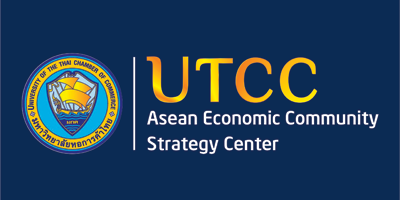Philippines: ‘PH politics a key risk to economic growth’
Another think tank has affirmed an emerging consensus that the Philippines’ short-term prospects remain upbeat but concerns are growing that politics and governance could threaten long-term growth.
London-based research consultancy firm Capital Economics released a report on Friday saying it remains sanguine about the short-term outlook on the country’s fundamentals.
Looking ahead, however, it said concerns are focused on “President Rodrigo Duterte’s increasingly erratic and crass leadership style, which could hold back long-run growth prospects.”
Due to sheer momentum from previous growth, this year’s gross domestic product (GDP) looks set to rise at a brisk pace of between 6.4 percent and 6.5 percent, according to forecasts by private institutions Capital Economics, HSBC, Standard & Poor’s Global Ratings, and Moody’s Investors Service.
That range reflects consensus confidence slightly below the government’s official target range of 6.5 percent to 7.5 percent of growth for 2017. Nevertheless, the Philippines is seen remaining a major performer in Asia this year upon delivery even of such lower-than-officially-expected growth.
“Low debt levels and a current account surplus mean the country is well-positioned to weather any negative shift in investor sentiment. Duterte’s decision to delegate matters of economic policymaking to his respected finance minister, Carlos Dominguez, which should help to reduce the risk of a sudden shift in economic policymaking, also helps,” Capital Economics said, pointing out a basis for its optimism for the medium term.
Healthy demographics and a booming business outsourcing sector are added reasons to be positive about the medium-term prospects, it said.
The think tank, however, pointed out that the long-term horizon does not look as bright.
“Duterte’s controversial statements and policy changes have centered on foreign policy and law and order issues, but abandoning the country’s long-standing security alliance with the US is unnerving investors, which will make them think twice before committing to long-term investments in the country,” it said in the report.
“A lower investment rate will in turn reduce the productive potential of the country,” it warned.
Capital Economics said the impact is more likely to be felt in the long run, and growth should remain strong over the short to medium term in the Philippines.
“With sentiment strong at home, private consumption, which accounts for around two-thirds of GDP [gross domestic product], is likely to hold up well over the near term. We expect growth to remain strong over the next couple of years,” it said.
This year, the firm is seeing GDP growing 6.5 percent before moderating to 6 percent in 2018. However, its 2017 forecast stays at the bottom of the 6.5 percent to 7.5 percent official target range of the government. It also reflects an easing from its 7 percent estimate for last year’s GDP.
Similar views
Global bank HSBC has also alerted the market that the Philippines faces a weakening current account and a widening trade deficit over the next two years as exports wane amid a slow global market recovery.
It warned in a report on Thursday (see page B1 of Manila Times, Jan 16) that the full impact of such external headwinds may be mitigated only partially by a rising inflow of foreign direct investment.
The global bank lowered its expectation for the country’s economic growth this year to 6.5 percent from its estimate of 6.8 percent for 2016.
Meanwhile, credit rater S&P maintained its stable outlook for the Philippines’ investment grade rating for now.
But it added that no upgrade may be expected in the next two years and that it may even cut the rating if the government reform agenda stalls.
For 2017, S&P sees a slight easing to 6.4 percent, although it reflects an upward adjustment from its previous forecast of 6.3 percent. Still, it falls below the official growth target in the range of 6.5 percent to 7.5 percent.
Debt watcher Moody’s has said ongoing reform in the Philippines is likely to boost the country’s medium-term economic growth but warned that domestic political risk, though low, is becoming more unpredictable and could disrupt progress for the long term.
For this year alone, Moody’s is predicting that GDP would rise 6.5 percent, with key domestic drivers of growth expected to remain solid.
Source: http://www.manilatimes.net/ph-politics-key-risk-economic-growth/306857/


 Thailand
Thailand




